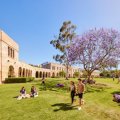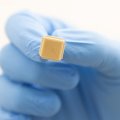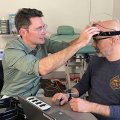Two University of Queensland researchers have been recognised as being the highest-ranked in the country at the recent National Health and Medical Research Council (NHMRC) Awards.
Professor David Paterson, of the UQ Centre for Clinical Research (UQCCR) received the Achievement Award for Top Ranked NHMRC Practitioner Fellow – the peak research funding body’s top award.
Professor Paterson is an Infectious Diseases Physician. He is Deputy Director (Clinical) of the UQCCR and Consultant Microbiologist and Medical Advisor for the Centre for Healthcare Related Infection Prevention and Surveillance.
His areas of research include antibiotic resistance in Gram negative bacilli and infections in immune compromised patients. He is currently researching extreme super bugs – bacteria with extreme drug resistance - which are resistant to all antibiotics and current treatments.
He has received the 2008 Frank Fenner Award for Advanced Research in Infectious Diseases by the Australasian Society for Infectious Diseases and in 2009 was winner of a Queensland Health Senior Clinical Research Fellowship, which is funding his super bug research.
Professor Rob Parton from the Institute for Molecular Bioscience received the Achievement Award for having the Highest-Ranked Project Grant. These grants are awarded by the council to fund specific projects, and each application is individually ranked.
Out of the 683 grants awarded across Australia in 2009, Professor Parton’s application was ranked the highest. His project will investigate ways of treating prostate cancer through suppressing the secretion of a protein called caveolin.
This protein is normally embedded in the cell surface but in aggressive forms of prostate cancer, it is secreted from cancerous cells and promotes the progression of the disease. Professor Parton will use the $588,500 project grant to study how caveolin is secreted with the ultimate aim of preventing the secretion in cancerous cells.
Professor Parton led a team that discovered the link between aggressive prostate cancer and caveolin. He also won an NHMRC Excellence Award in 2007 for having the top-ranked Program Grant, and was awarded $4 million Australia Fellowship in 2009 by the Australian Research Council.
.jpg)











